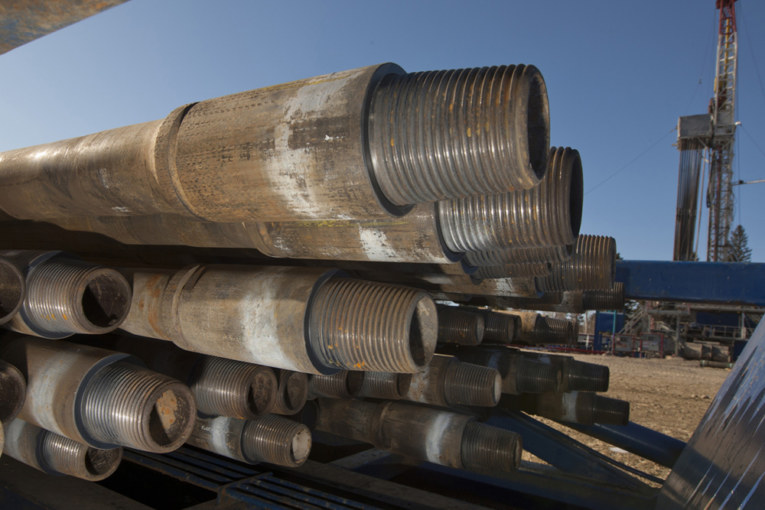
CALGARY – More relief is on the way for embattled natural gas producers trying to stave off bankruptcy.
The day after cutting municipal taxes for natural gas producers, Alberta’s Associate Minister of Natural Gas Dale Nally said it is urgent the province do more for the struggling sector in the coming weeks.
“It’s imperative that we get some things out by the end of the summer,” Nally told the Financial Post, adding the government “is absolutely concerned about more bankruptcies” will occur without additional relief, especially as AECO gas prices averaged just 17 cents per thousand cubic feet at times last week and averaged just 69 cents on Tuesday. He declined to say what types of relief or tax breaks might be on the way.
Late Tuesday, Nally announced gas producers with shallow gas wells would get a one-time 35 per cent municipal tax break in a move that is expected to save producers $23 million.
“That was not a handout to the gas producers. That was not to prop them up. That was to correct a wrong. They were being over assessed,” Nally said of the municipal tax break, adding their municipal tax assessments had been rising since 2015 even though the value of their wells and assets have declined.
He called the tax break a “band aid” on the problems that gas producers currently face, which include choke points along existing pipelines moving their product, oversupply in the local Alberta and B.C. market and cancelled LNG export projects, such as Pine Cliff Energy Ltd. and Ember Resources Inc., said Raymond James analyst Jeremy McCrea.
Neither Pine Cliff nor Ember responded to requests for comment.
“It helps but it just delays the inevitable,” McCrea said of the municipal tax break, adding that many companies are still in financial distress due to persistently low prices and could end up like bankrupt Trident Exploration, which closed its doors and handed 4,700 wells over to the care the Alberta Energy Regulator in May.
“I would have said a year ago that there’ll be more consolidation (in the natural gas sector due to low prices) but there’s almost too many issues for anything to happen,” McCrea said.
He added that consolidation in the sector is unlikely because no management team would agree to buy natural gas wells that generate negative cash flow and banks wouldn’t agree to finance such a transaction.
“You’ve got a two-year problem and the government of Alberta has a few weeks to solve it
Tristan Goodman, president, Explorers and Producers Association of Canada
TC Energy Corp., formerly known as TransCanada Corp., is currently building out new natural gas pipelines to connect Alberta’s gas supplies with markets in Central Canada and the U.S. as well as the Coastal GasLink Pipeline to supply Shell Canada Ltd.’s LNG Canada project in Kitimat, B.C.
“You’ve got a two-year problem and the government of Alberta has a few weeks to solve it,” said Tristan Goodman, president of oil and gas advocacy group Explorers and Producers Association of Canada, adding some of the pipelines will be operating within two years but some producers could fail as early as by the end of the summer.
The municipal tax breaks, he said, “will definitely prevent some bankruptcies” but he called it a “first step” in a series of actions that need to be taken in the sector.
A June 29 research note from Desjardins Securities also said “three natural gas producers in Western Canada could be poised to declare bankruptcy,” an outcome the bank said was “likely given the environment that the Western Canadian companies have faced the past couple of years.”
“Do we have a few more Trident situations coming? If our sources are correct, it certainly sounds like it,” the bank noted, though it didn’t name which producers could fail.
The bank suggested that natural gas producers might agree to curtail their production – in the same way the Alberta government forced oil producers to cut their output this year – in a bid to lift prices, which are “flirting with zero.”
Desjardins noted that a co-ordinated curtailment among producers would be considered industry collusion and therefore a breach of competition rules.
Other solutions could be offered in the coming weeks.
“We hope the government would look at all gas wells, deep or shallow,” said James Millar, spokesperson for Pieridae Energy Ltd., which bought Shell Canada Ltd.’s gas assets in the southwest corner of Alberta in June for $190 million to feed its liquefied natural gas export project in Nova Scotia.
The government also needs to streamline regulations in order to reduce costs for producers to encourage more gas drilling and create jobs in the province. “We want to be drilling wells in 2020 to supply our Goldboro LNG project,” Millar said.
Minister Nally said the province’s long-term solution to the problem facing natural gas producers is to encourage and support the development of LNG export projects.
“We need to get our LNG to China, India. There are less secrets about our long-term solutions because they’re so obvious,” Nally said.
In addition to Pieridae’s Goldboro LNG facility, two other projects to export Canadian gas are inching towards a final investment decision this year, including Pembina Pipeline Corp.’s Jordan Cove LNG project in Oregon and the Woodfibre LNG project on the B.C. West Coast.
On that front, Woodfibre LNG announced Wednesday it had received permits from the British Columbia Oil and Gas Commission for its gas export project in Squamish. LNG projects are expected to lift natural gas prices as it secures new markets.
“This permit is a large piece of our puzzle, and with it in place, we are working towards a final decision to proceed with this project this summer,” Woodfibre president David Keane said in a release.
• Email: [email protected] | Twitter: geoffreymorgan
You can read more of the news on source
